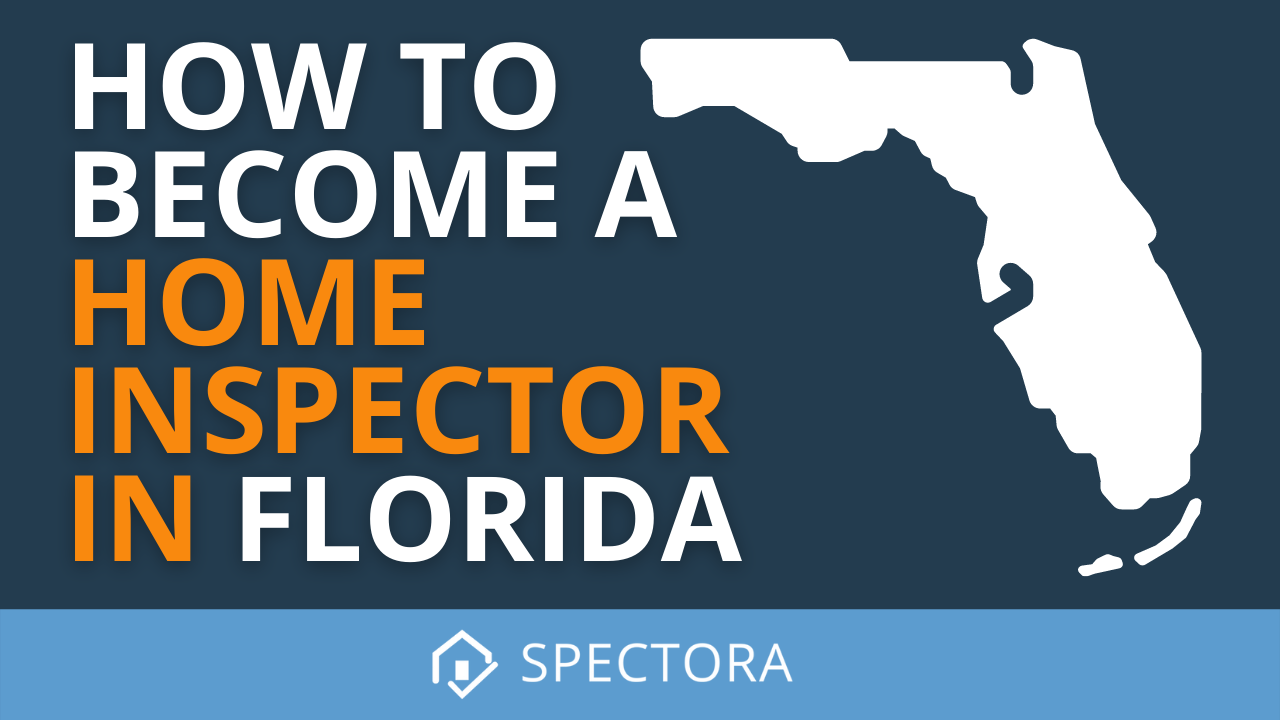How to Become a Home Inspector in Florida


Updated December 10th 2024
Are you looking to become a home inspector in Florida? With its dynamic real estate market and high demand for home and insurance inspections, home inspection is an appealing career in the Sunshine State. But where do you start?
Unlike many other states, Florida regulates its home inspectors through the Florida Department of Business and Professional Regulation and requires them to be licensed. In this article, we'll walk you through the steps required to become a home inspector in Florida.
Prefer a video walkthrough? Watch our video guide below.
To become a home inspector in Florida, you will need to:
Before submitting your application to be a home inspector, the state of Florida requires you to pass a criminal background check and get fingerprinted from an approved provider.
Having a criminal background does not automatically exclude you from becoming a home inspector in Florida. Each case is individually reviewed.
The DBPR recommends getting your background check and fingerprinting completed at least 5 days before applying for your license. However, we recommend starting with this step before pursuing education and licensing.
Step 2. Take 120 hours of coursework
You need to take 120 hours of classes before you can apply to become a home inspector, which are broken into several smaller courses with a test at the end of each. The courses are required by the DBPR, but you can take them from almost anywhere. Many approved courses are offered either online, in-person, or hybrid. The coursework will cover the essentials you need to know to become a home inspector.
Looking for a place to start? InterNACHI and AHIT are both reputable, nationally recognized education providers that offer state-approved education for prospective Florida home inspectors.
After completing 120 hours of coursework, you'll need to pass a DBPR-approved licensing examination. There are four approved exams you can choose from:
The National Home Inspection Examination (NHIE) is an exam offered to home inspectors nationwide. One benefit of taking the NHIE is that it may be easier to get a reciprocal license if you ever choose to move states or expand your business across state lines.
Unfortunately, accidents happen and when they do, it's essential to be protected. All Florida home inspectors are required to carry insurance coverage to the tune of a $300,000 (at least) general liability insurance professionals. To get the best rates on your commercial insurance, we recommend comparing insurance policies.
Once you have completed your education, passed a state-approved examination, and obtained proof of insurance, it's time to apply to become a home inspector. You can submit an application, along with a fee of $230, to the Florida DBPR.
If you're planning to start your own home inspection business, you'll need to register your business with the Department of Revenue, and of course, with the IRS. Remember, if you plan on opening your own business, you'll need to obtain the proper insurance coverage.
When you run your own business, you'll also need to choose the right tools and home inspection software to run your business, like Spectora. Choosing the right software for you is an important decision, as it will contribute to your efficiency and your clients satisfaction. We recommend exploring your options and determining which software works best for you, as many software companies in the home inspection industry offer free trials.
Would you rather start out by working at an established company? There are many well-established multi-inspector companies in Florida looking for licensed inspectors. You can get valuable experience and skip the process of marketing and building your business.
While you may not make as much have as much independence, learning under an experienced mentor is incredibly valuable experience and can reduce the overhead cost of becoming a home inspector. You can start with list of home inspectors in Florida (if any are hiring), leverage local connections, or look on job boards to find opportunities.